40 Years of Political Ads
AnnKara‘s latest, in their Weekend America: 1968 series, is a mashup made only from the sounds of 70 different “Political Ads” over the past 40 years (3:51 mp3):

AnnKara‘s latest, in their Weekend America: 1968 series, is a mashup made only from the sounds of 70 different “Political Ads” over the past 40 years (3:51 mp3):

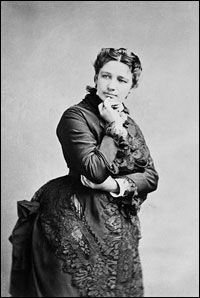 Excellent Radio Diaries series running on NPR ATC this week on past presidential “Contenders:”
Excellent Radio Diaries series running on NPR ATC this week on past presidential “Contenders:”
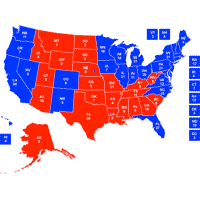
![]() Hearing Voices from NPR®
Hearing Voices from NPR®
033 Political People: On the Campaign Trail
Host: Barrett Golding of Hearing Voices
Airs week of: 2010-10-13 (Originally: 2008-10-15)
“Political People” (52:00 mp3):
In 1992 producer Barrett Golding found remnants of Jefferson’s theories and Toqueville’s writings still very much in play, as he followed Montana’s two incumbents US Representatives, one Democrat, one Republican. Due to re-apportionment, they were vying for the state’s one remaining Congressional seat, on a yearlong statewide game of political musical chairs. (Image above-right: Presidential Electoral Vote map, 1968-2008, animated, see full-size here.)
And Jonathan Menjivar documents Harold Washington College and University of Chicago students discussing “Dreams of Democracy” (audible | PRX) part of the WBEZ series Chicago Matters: Our Next Generation.
Original songs by Greg Keeler and instrumental music by Jeff Arntsen of Racket Ship.
We’ve animated the 2008 and ten previous elections using RealClear’s Electoral Maps:
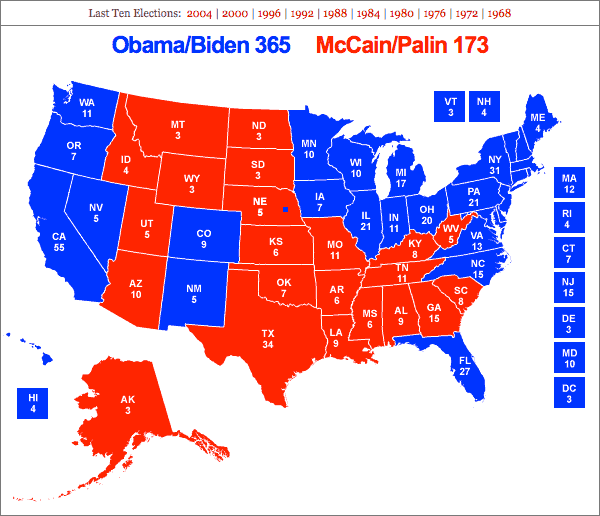
![]() Hearing Voices from NPR®:
Hearing Voices from NPR®:
032 Soapbox— Sampling 20th Century Political Speech
Host— Sarah Vowell of This American Life
Airdates— 10/8/2008 – 10/15/2008
Soapbox (53:00 mp3):
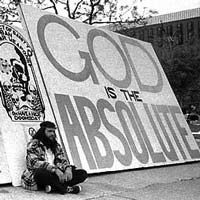 We hang with the mostly homeless protesters, and Scott Carrier, in “Lafayette Square” across from the White House.
We hang with the mostly homeless protesters, and Scott Carrier, in “Lafayette Square” across from the White House.
“Memory Waltz” is from composer Oliver Nelson’s LP: The Kennedy Dream; A Musical Tribute to John Fitzgerald Kennedy., with musicians Phil Woods, Hank Jones, George Duvivier and Grady Tate.
Bonus audio: The Kennedy Dream “A Genuine Peace” (2:35 mp3):
We hear excerpts from All the Presidents’ Inaugurations:
• Calvin Coolidge— Inaugural Address, Wednesday, March 4, 1925
• Franklin D. Roosevelt— First Inaugural Address, Saturday, March 4, 1933
• Harry S. Truman— Inaugural Address, Thursday, January 20, 1949
• Dwight D. Eisenhower— First Inaugural Address, Tuesday, January 20, 1953
• John F. Kennedy— Inaugural Address, Friday, January 20, 1961
And from John McCain and Barack Obama’s September 26 2008 Presidential Debate, Oxford MS.
Writer Dave Eggers helps his brother Bill run for State Representative as a Republican — blood proves thicker than politics, from This American Life.
Slam poet Taylor Mali tells us “How to Write a Political Poem” (CD: Conviction).
Host Sarah Vowell digs “The Garden for Disappointed Politicians,” from The Future Dictionary of America. Music by Jeff Arntsen of Racket Ship.
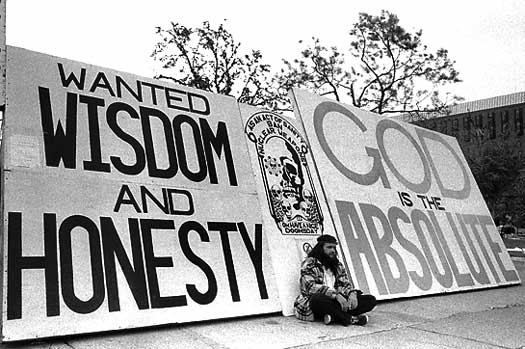
Thomas in Lafayette Square; © 1983 Scott Carrier
Audio artist Jesse Boggs choreographs a bipartisan “WMD Waltz.”
And more Presidents’ Inaugurations
• Lyndon B. Johnson— Inaugural Address, Wednesday, January 20, 1965
• Richard M. Nixon— Second Inaugural Address, Saturday, January 20, 1973
• Gerald Ford Remarks— On Taking the Oath of Office, Friday Aug. 9, 1974
• Jimmy Carter— Inaugural Address, Thursday, January 20, 1977
• Ronald Reagan— Second Inaugural Address, Monday, January 21, 1985
• George H. W. Bush— Inaugural Address, Friday, January 20, 1989
• Bill Clinton First— Inaugural Address, Thursday, January 20, 1993
• George W. Bush— Inaugural Address, Saturday, January 20, 2001
Audio by Jesse Boggs; video by Trent Harris, “Bushisms” (the cryptomusicology of Presidential patter):
![]() Another recent HV story on NPR Day to Day— Chicago barber Rex Mitchell insists that his window display is not an anti-war statement. For the past year, the barber has kept a running tally of soldiers killed in Iraq in the window of his Gold Crown Barber Salon. By producer Christopher Booker, for HV and Chicago Tribune multimedia.
Another recent HV story on NPR Day to Day— Chicago barber Rex Mitchell insists that his window display is not an anti-war statement. For the past year, the barber has kept a running tally of soldiers killed in Iraq in the window of his Gold Crown Barber Salon. By producer Christopher Booker, for HV and Chicago Tribune multimedia.
“Window to War” (2:20 mp3):
Photos © Christopher Booker:
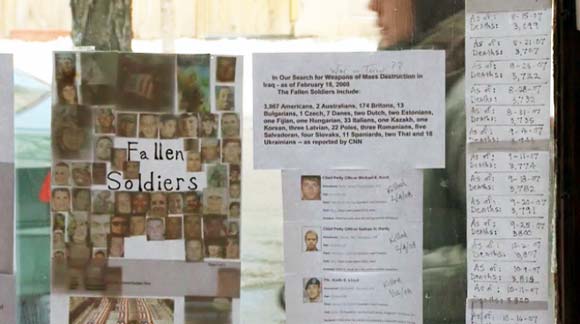
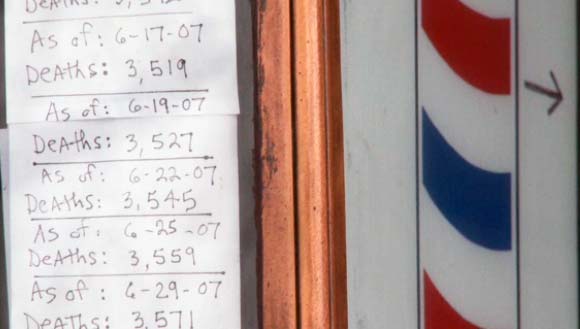
Last week’s Bernake/Paulson/Cox C-Span Congressional Extravaganza left me impressed w/:
• SEC’s Cox’s extremely educational testimony on what his agency can/can’t regulate (according to current law).
• FedRez’s Bernake’s insight on foreign banks are intertwining w/ those in USA.
• Congressional questioning, whether from D or R, seeking some/any clarification on procedures for the “proposed purchase of troubled assets”.
• Was particularly proud of my own Junior Sen. Jon Testor’s (D-MT) understanding of the implications and history of this year’s gov bailouts, and his pointing out how in past, the Fed/TreasDept has said all $X-Billion of the loan appropriation might not be used (as they’re saying now), but in fact every penny was.
Sec. of $s Paulson, otoh, met every request for clarity w/ a variation of: “We want the money and we want it now.” Heard no evidence this guy has any clue what he’s doing, what he’s going to do, or even what he did.
I gave him the benefit of doubt, tho — maybe he was hiding details in hopes of expediency. So I looked elsewhere for some sign this guy’s even mildly competent.
Found none. But along the way did run into lotsa illuminating info. What follows is an audio and url annotated travelogue of my trip thru the web. More…
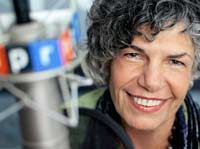
![]() Hearing Voices from NPR®
Hearing Voices from NPR®
031 The Stamberg Files: Essays, Audio-tours, and Interviews
Host: Susan Stamberg of NPR
Airs week of: 2009-12-30 (Originally: 2008-10-01)
“The Stamberg Files” (52:00 mp3):
Susan pulls some pieces she’s most proud of from the NPR audio archives:
She knits her way though history, takes us on a personal tour of DC, and tries to interest her colleagues in resurrecting her infamous relish recipe.
She talks with economist Milton Friedman, actor Judi Dench, writer Nora Ephron, and pianist Leon Fleisher.
In pursuit of patriotism, Ms. Stamberg de-France-ifies popular culture, then ends in a Parisian park, chatting with a world-class conversationalist. Above photo © 2006 NPR by Antony Nagelmann.
rx has a new video, sampling George W Bush doin’ it “My Way:”
 Who are these Undecideds, who absorb the media spotlight like a black whole, who can’t leave their house w/o participating in 3 surveys, 4 focus groups, and a sit-down w/ CNN? The Undecideds look like us, they talk like us. They live amongst us. But they are different, my friends, to the core.
Who are these Undecideds, who absorb the media spotlight like a black whole, who can’t leave their house w/o participating in 3 surveys, 4 focus groups, and a sit-down w/ CNN? The Undecideds look like us, they talk like us. They live amongst us. But they are different, my friends, to the core.
Their choice it simple: it’s either Fresh Face or POW-guy. We all picked long ago. Yet the Undecideds waffle and flip-flop. They are guilty of, in a word, Indecisiveness.
And Indecisive is not something America can afford. Not in these perilous times, what with the overseas War on Anxiety and domestically The Greatest Economic Collapse Since The Last One.
These Undecideds threaten all we hold dear and purchasable by credit.
Why don’t we make them choose? Now. Maybe if they made their minds up, we could hold the elections early. This would save the US billions in attack ads alone, which we could reinvest in bribing Wall Street to quit killing our economy.
Indecision, not now, not ever, not here in the good ol’ USA.
(For more on battling indecisiveness, see previous post.)
This one definitely Not Safe For Work (NSFW), produced by an Obama-nation known as Jewish Council for Education & Research, it’s Sarah Potty-Mouth Silverman for The Great Schlep, on Vimeo (NSFW):
via WFMU’s blog.

Another Protest Song “invites artists, songwriters, and musicians to create, upload, listen, and debate new songs of protest as part of a growing audio archive of politically engaged music.” The site asked the musical question: “What does a 21st Century protest song sound like?”
Well, it mostly sounds pitiful, pampered, and pompous, if the protest songs posted there are any indication. But among the garbage are some gems, like…
“This is What Democracy Looks Like” (5:13 mp3):
Based on recording of protest against Iraq War, New York, March 2003. Written/produced/performed by Bob Goldberg/BAN Radio “Orchestra”, 2003.
Another musical Obama-nation, Ben Sollee re-does his tune w/ the Best of Barack mixed in by DJ 2nd Nature:
“A Few Honest Words” (2:18 mp3):
More info and links at Some Velvet Blog.
“Take a Load Off Fannie,” and Freedie too. And put the load right on us; a music video (song: The Band “The Weight”) by Omid Malekan of Visual Stories:
The NY Times web wizards have come up with another graphically revealing data display. “The Words They Used” charts the number of times speakers at the GOP and Dem conventions used some key terms. Here’s a detail:
Once again the only news network with a sense of history and, I guess, a research staff, is… the Comedy Channel; it’s Rove v. Rove and O’Reilly v. O’Reilly in this Daily Show’s “Sarah Plain Gender Card” segment:
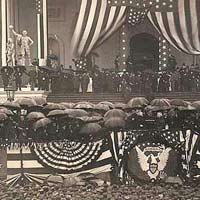
![]() Hearing Voices from NPR®
Hearing Voices from NPR®
026 Prime Candidates: Portraits of Past Presidential Primaries
Host: Barrett Golding of Hearing Voices
Airs week of: 2011-12-28 (Originally: 2008-08-27)
“Prime Candidates” (52:00 mp3):
The plight of pols on the campaign trail:
From the 1980 primary: politicians who fancy themselves president tromp thru the mill town of Claremont, New Hampshire. Produced for NPR by Larry Massett and Art Silverman, with Betty Rogers.
From the 2000 primary: The media spin myths out of misquotes; produced by Alex Blumberg and Ira Glass for the “Primary” episode of This American Life.
From the 2003 California Gubernatorial Recall: Douglas Fleishut and the Language Removal Service concoct the world’s first wordless political debate in their “California Recall Project.”
From the 2008 primary: Losers in the March “Super Tuesday” vote re-appear, w/ music by Robert Wyatt and Bruce Springsteen, from Peter Bochan‘s series Presidential Shortcuts.
Photo: Chief Justice Melville W. Fuller administering the oath of office to Benjamin Harrison on the east portico of the U. S. Capitol, March 4, 1889; from the Library of Congress “I Do Solemnly Swear…”: Presidential Inaugurations.
The NY Times map of “Where the Candidates Found Support” provides one of the more interesting views of the Democratic primary race. Note how Clinton won a swath of the country (from north Texas to upstate New York that you could term Trans-Appalachia. Obama, meanwhile, took the everything on the other side of them thar hills, which happened to be both more heavily populated and more African-American. But I think it’s interesting too how he picked up all of the predominantly white Northwest too.
“Demography trumps everything” sez David Runciman in the latest London Review of Books, “The Cattle-Prod Election:”
“But viewed in retrospect, it is clear that it has been quite predictable. All the twists and turns have been a function of the somewhat random sequencing of different state primaries, which taken individually have invariably conformed to type, with Obama winning where he was always likely to win (caucus states, among college-educated and black voters, in the cities), and Clinton winning where she was likely to win (big states with secret ballots, among less well-educated whites and Hispanics, in rural areas). Even the initial drama of that week in early January – when Obama’s victory in Iowa had seemed to give him a chance of finishing Clinton off, only to be confounded by her victory in New Hampshire, which defied the expectation of the pundits and had them all speculating about what had swung it (was it her welling up in a diner? was it hastily rekindled memories of Bill? was it hints of hubris from Obama?) – turns out to have been an illusion. Iowa was Obama country (younger, smaller, caucus meetings) and New Hampshire wasn’t (older, bigger, voting machines). The salient fact about this campaign is that demography trumps everything: people have been voting in fixed patterns set by age, race, gender, income and educational level, and the winner in the different contests has been determined by the way these different groups are divided up within and between state boundaries. Anyone who knows how to read the census data (and that includes some of the smart, tech-savvy types around Obama) has had a good idea of how this was going to play from the outset. All the rest is noise.”
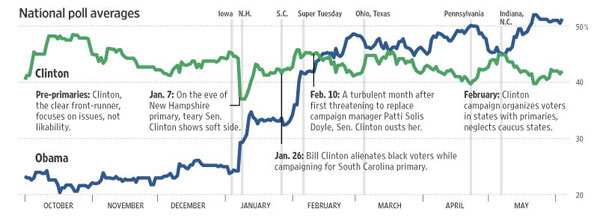
This Slate graph (via WSJ) of National Poll Averages shows how Clinton’s support never really varied but Obama’s continually rose. (Also see RealClearPolitics McCain vs Obama trendlines.)
It was 40 years ago today; the Ambassador Hotel in LA— Robert Francis Kennedy (Nov. 20, 1925 – June 6, 1968).
From Shona Laing’s 1988 South, “(Glad I’m) Not a Kennedy” (3:28 mp3):
![]() Here’s Chance’s more accurate Cyclone report w/ the other story, not being told: the Burmese elections. No one would run this, so we’ll post it, “Irawaddy Delta Blues” (5:10 mp3):
Here’s Chance’s more accurate Cyclone report w/ the other story, not being told: the Burmese elections. No one would run this, so we’ll post it, “Irawaddy Delta Blues” (5:10 mp3):
More…